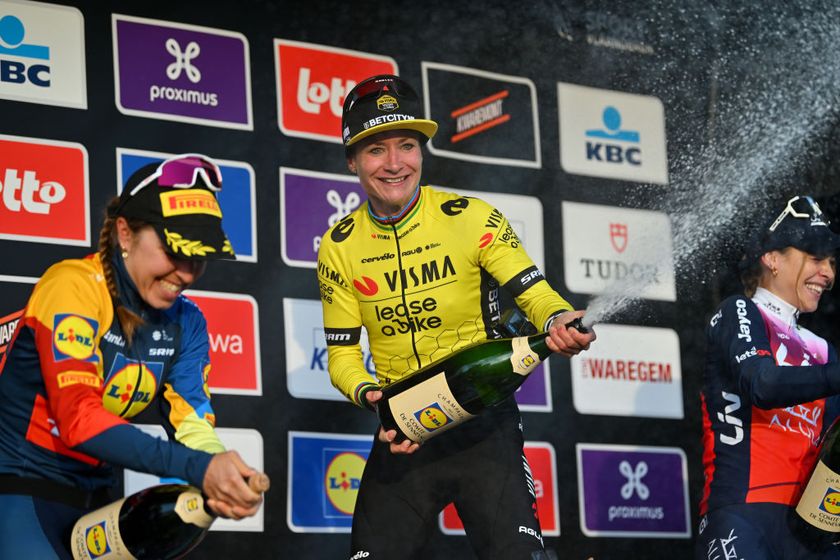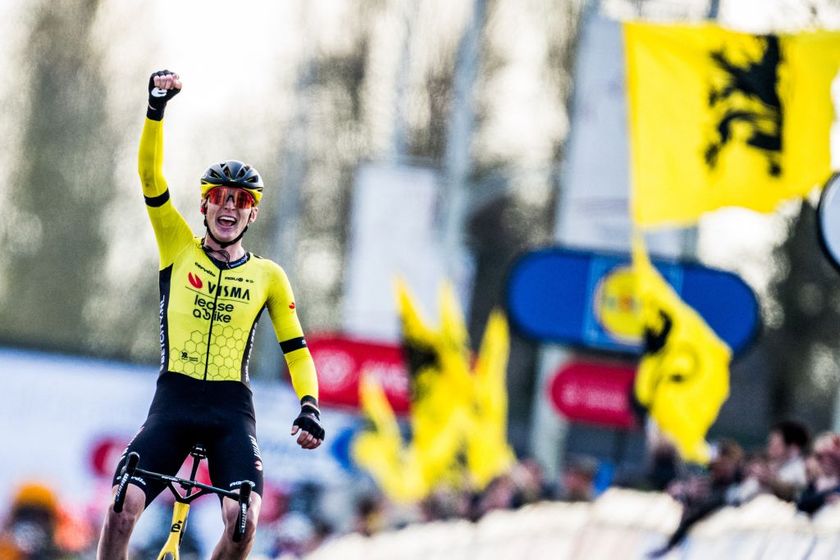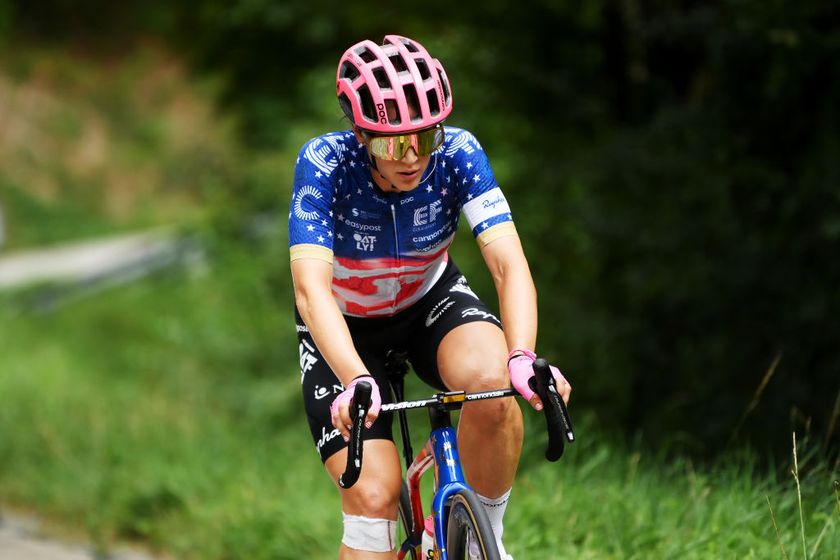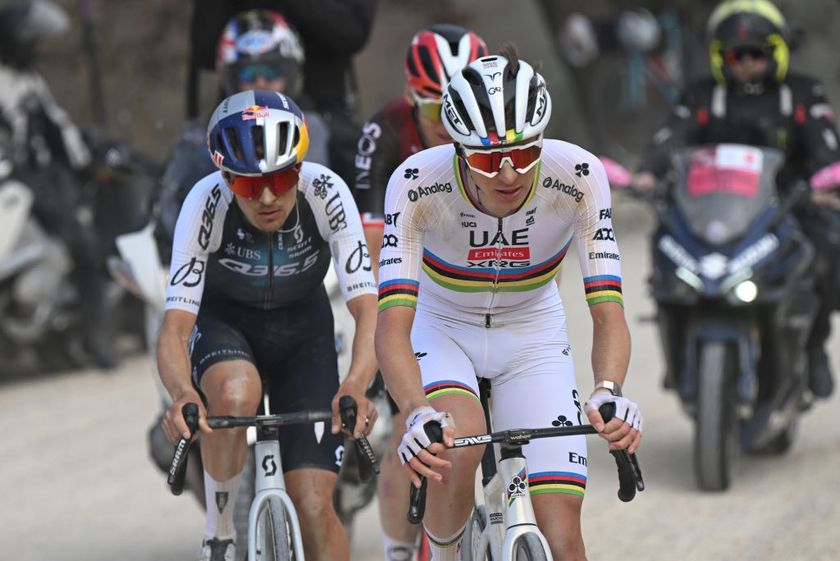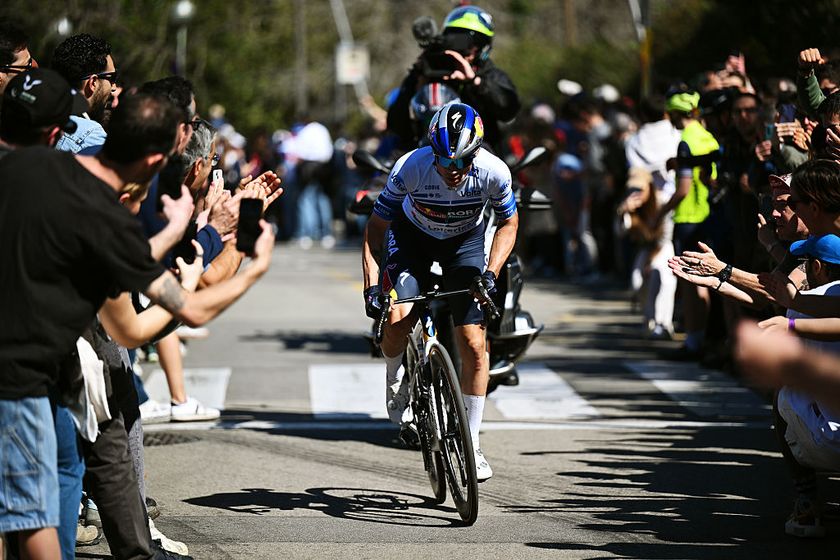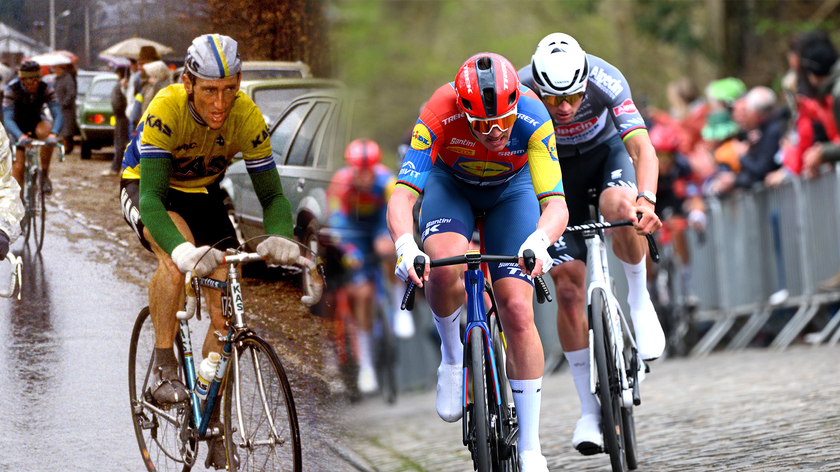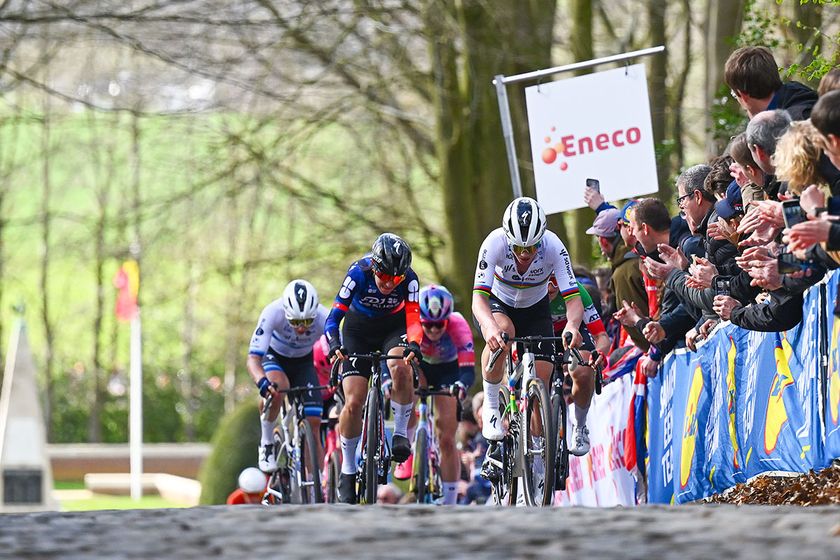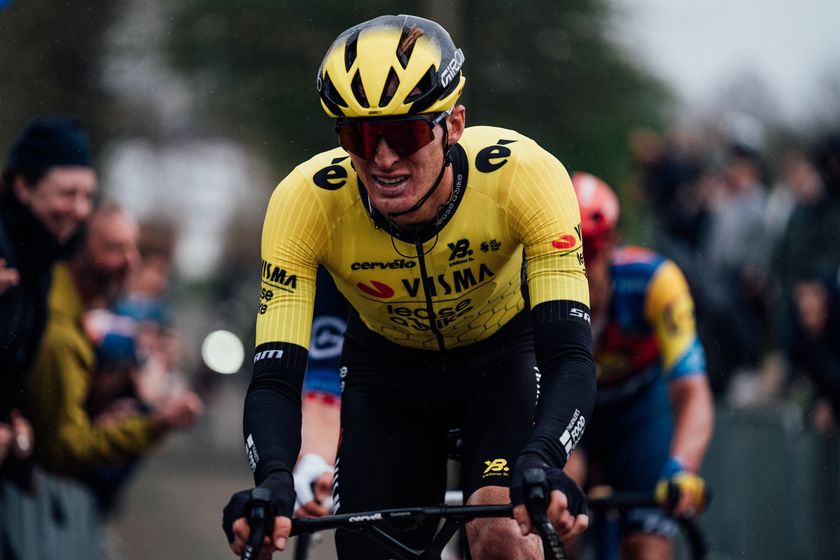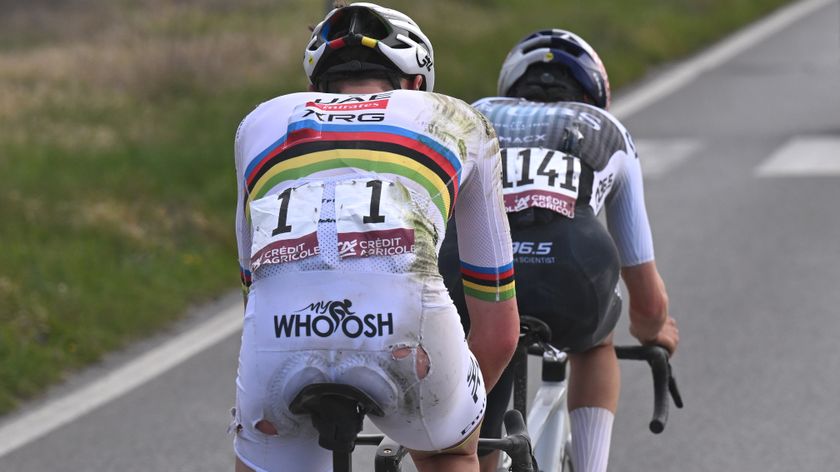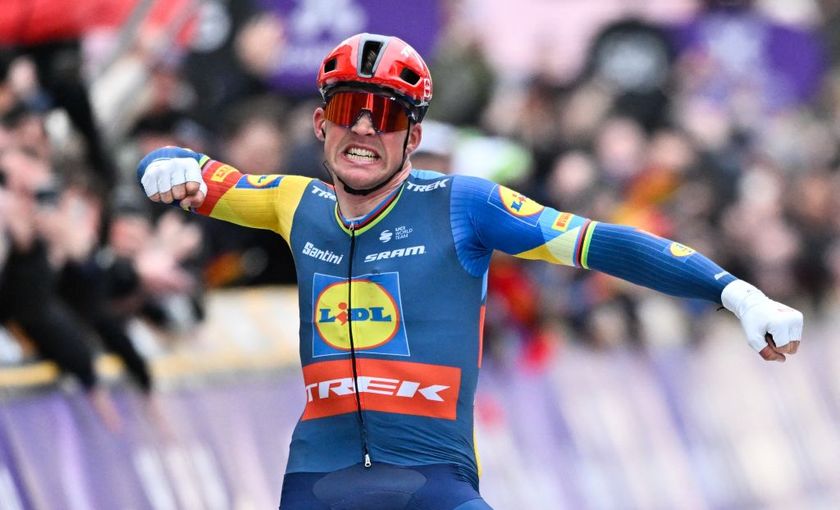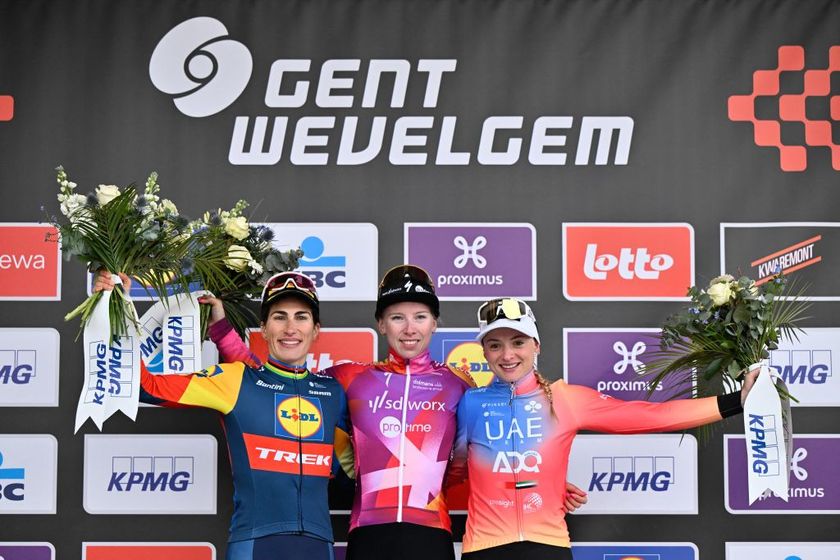Idealism is more important than all-out success, says Sunweb doctor
'Some teams are afraid to lose a sporting edge' says Boelens
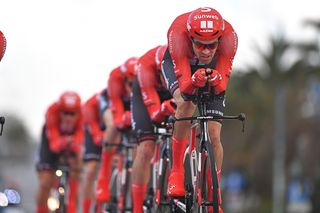
The last few weeks have highlighted two key moments in the ongoing anti-doping fight. Firstly, the UCI has taken the initiative and banned the powerful and controversial painkiller tramadol, with the first batch of tests taken during Paris-Nice. While these measures have been widely applauded by riders and teams, the damaging revelations of a doping ring in Austria, with two rider confessions and the possibility of more to follow, have stripped bare the notion that cycling's dark arts have been eradicated entirely.
The ban on tramadol, which carries its own rules on suspensions separate to those typically associated with the World Anti-Doping Agency (WADA), came after almost half a decade of lobbying from bodies and agencies such as the Movement for Credible Cycling (MPCC).
This collection of teams from the WorldTour and below has, at times, faced criticism, but their core intention has always been centred around 'doing better' and looking to improve the culture within the sport. Team Sunweb were one of the founding members of the movement and their doctor, Anko Boelens, was one of the leading voices calling for the sanctions over tramadol.
"I know that the cycling world isn't completely clean yet," Boelens tells Cyclingnews.
"Almost everyone that works in cycling will have to acknowledge that, but we also have become cleaner, and we've created a mentality that's a lot better than a few years ago."
Boelens heralds the tramadol ban as a 'welcome' advancement but adds that Sunweb have banned the substance internally for a number of years. In fact, if riders on the squad break rank and use tramadol, either in training or racing, they risk having their contracts dissolved. Sunweb, according to Boelens, are likely to treat the use of tramadol like any other major doping violation.
"Even before the MPCC banned it, we didn't use it at all. It's a painkiller and it's one that you need if there's a serious problem. For us, it was never a question if someone could ride with Tramadol. We never did it. In the interests of having a clean and credible sport and in the interest of having a safe sport, it's good that it's banned in-competition," he says.
Get The Leadout Newsletter
The latest race content, interviews, features, reviews and expert buying guides, direct to your inbox!
"Our riders are not supposed to use it and if they do it behind our back then it would be a serious violation, which we would probably treat as a doping violation internally. We don't bring it to races - we don't and we won't. Our riders could be fired if they took it intentionally. They could only do it behind our backs and that would be an ultimate breach of confidence."
The Biological passport
While the idea of a team taking a strong stance over a controversial and dangerous painkiller should enhance the notion of a cleaner sport, the reality is that cycling - like all professional sports - is still facing major hurdles in the fight against doping.
In March, the news of a blood doping cell in Austria sent shockwaves through cycling. Blood bags were seized, arrests were made and, at this point, two riders have confessed to being part of the programme. One of them was Georg Preidler, who rode for Sunweb from 2012 until 2017, at which point he moved to the French outfit, Groupama-FDJ. His confession stated that in 2018 he only extracted blood without re-injecting it but, like the earlier confession from Stefan Denifl, it raised legitimate questions over the culture of the sport and the biological passport.
Boelens stresses that the UCI's leading weapon in the fight against doping still had the support of Sunweb, and the Dutch doctor explained that, though the system has flaws, it remained an important tool.
"If you look at the history of doping in sport, the passport had a huge influence on how riders behaved. You just need to look at the blood samples that were collected. It immediately became a deterrent and meant that doping wasn't used on the same scale as it was at before. For that reason, the passport still has value because it means that people can't be blatant."
What the passport has seemingly struggled with is the concept of micro-dosing and other variables, which Boelens admits are still 'weaknesses'.
"It's all a matter of what you expect," he says. "Maybe some expect too much from the passport. They expect that if those that dope once, then the passport will prove beyond doubt that the athlete is cheating. That's not how it works. That said, it's still an important tool in the hands of the anti-doping authorities."
Boelens highlights that it is imperative that riders from all teams, no matter their stature or status, should be tested thoroughly. Although riders should be tested based on targeted information and science, the athletes struggling for jobs were just as susceptible as those chasing the biggest prizes in the sport.
"Just because it's not perfect, you shouldn't discard it," he says. "We want our riders tested as much as possible by an independent body. We want the anti-doping agencies to test our riders as much as possible. Not just the top riders, but also the low profile riders; the ones that are struggling to find new contracts; the ones who dream of being leaders one time. It's just as important to test those riders.
"For me, it's never enough. If it was up to me I'd have every rider of my team tested once a month."
Grey areas and a level field
The examples over the biological passport and tramadol highlight two important sides to the anti-doping war but there are a number of issues in the centre of the battlefield that remain complex, to say the least. For example, it's telling that the UCI has implemented recommendations from the MPCC over tramadol and the no needle policy, yet the membership of the MPCC does not extend to every WorldTour team. The MPCC is not an extension of WADA, so teams are not obliged to join.
Team Sky, Deceuninck-QuickStep, and Astana are three noticeable absentees from the list of members, although the latter were somewhat token members until an issue in 2015 led to them dropping out rather than starting the Tour de France with one less rider. In 2016 the MPCC stated on record that Katusha, Lampre-Merida, and Astana had only joined the movement out of 'opportunism'.
Having a sport in which two sets of teams compete in the same events yet one half holds themselves to different and potentially higher standards is somewhat difficult to understand and Boelens admits that MPCC teams, while striving for idealism, may put themselves at risk - even marginally - when it comes to nullifying a competitive edge. The prime example: banning tramadol internally while other teams prescribed it to their riders.
"We like to think so," he says when asked if MPCC teams race on a level field. "Obviously there's a reason why there has been abuse in the past but I think that we can win and compete at the same level as other teams.
"Maybe someone would say that we put ourselves at a disadvantage but if there's a disadvantage then it's a small one. It's one that we think is the right thing for us and for cycling. You have to start somewhere."
When it comes to the grey areas, Sunweb utilizes a set of questions borrowed from the Dutch national federation. They request a rider asks themselves three questions: is it performance enhancing, is it possibly harmful, and is it against the spirit of sport?
"You can wildly interpret the last one but if the answer is yes for two out of three then morally it's better not to take it. So every time there's a situation with that grey area we try and fall back to that stance.
"There's a reason why we want to eliminate the grey area. There's a reason why some seek out that grey area to get bit of an advance but I think that our riders can still perform at the highest level, can still win races, and I think it doesn't outweigh our conviction that if you want to have a sustainable future then you need to eliminate the grey areas. We happily accept that there's a chance we hurt ourselves sportingly, and it's slight, but there is a grey area for a reason but that doesn't outweigh a more sustainable cycling world. Call it idealism. We feel that's more important. Idealism is more important than all-out success or working within the grey areas."
The wider question is why other teams are still unwilling to join the MPCC, even when the UCI repeatedly use the movement's work to enhance their own arsenal against doping.
"It's pure speculation because they've not told me but I'm guessing it's because they're not ready, because they're afraid to lose a sporting edge. But even MPCC teams can find themselves in grey areas. If you crash hard and take 600mg of ibuprofen, that's a question. You can never say it's not going to happen with you."
Daniel Benson was the Editor in Chief at Cyclingnews.com between 2008 and 2022. Based in the UK, he joined the Cyclingnews team in 2008 as the site's first UK-based Managing Editor. In that time, he reported on over a dozen editions of the Tour de France, several World Championships, the Tour Down Under, Spring Classics, and the London 2012 Olympic Games. With the help of the excellent editorial team, he ran the coverage on Cyclingnews and has interviewed leading figures in the sport including UCI Presidents and Tour de France winners.

